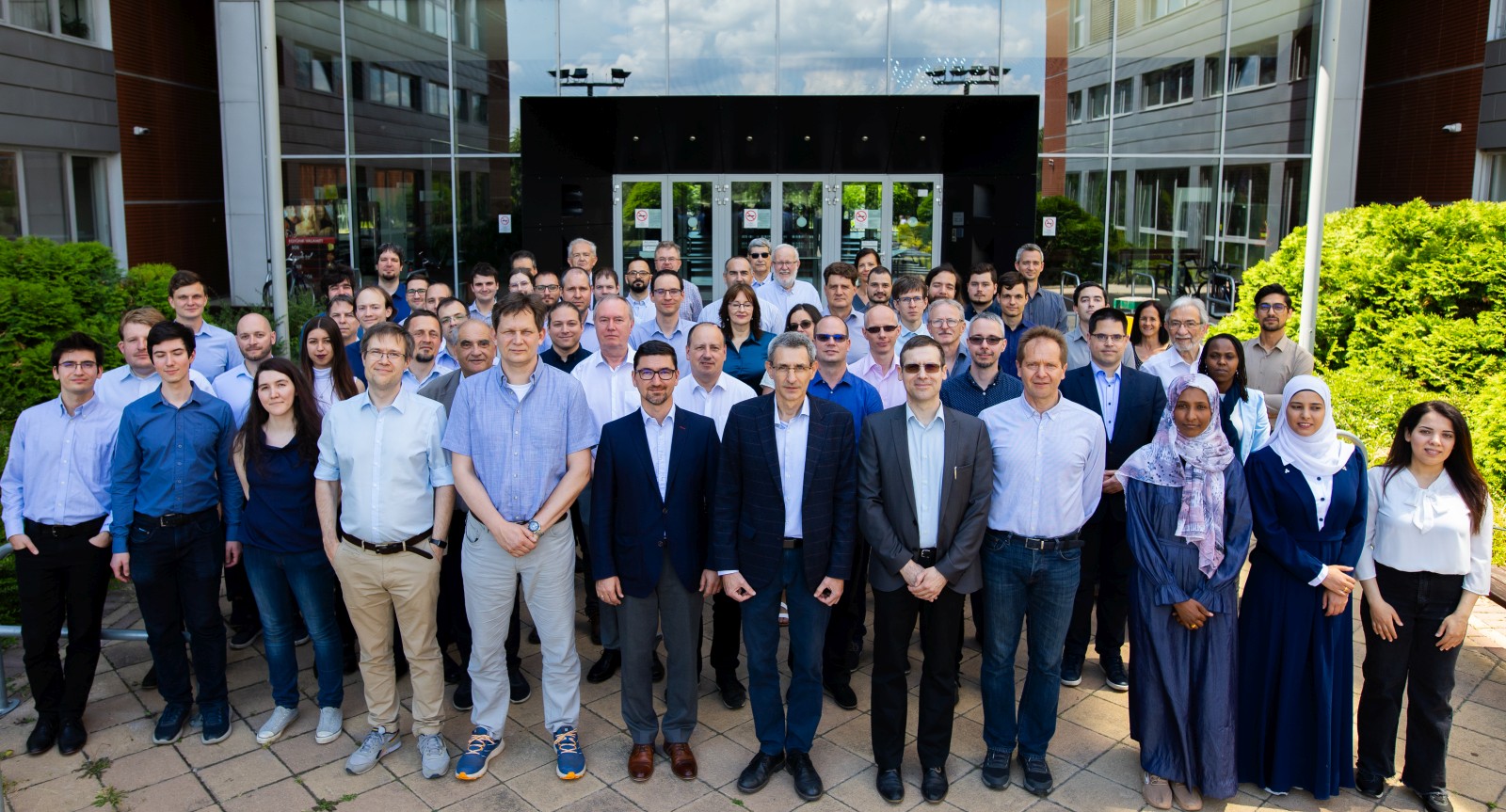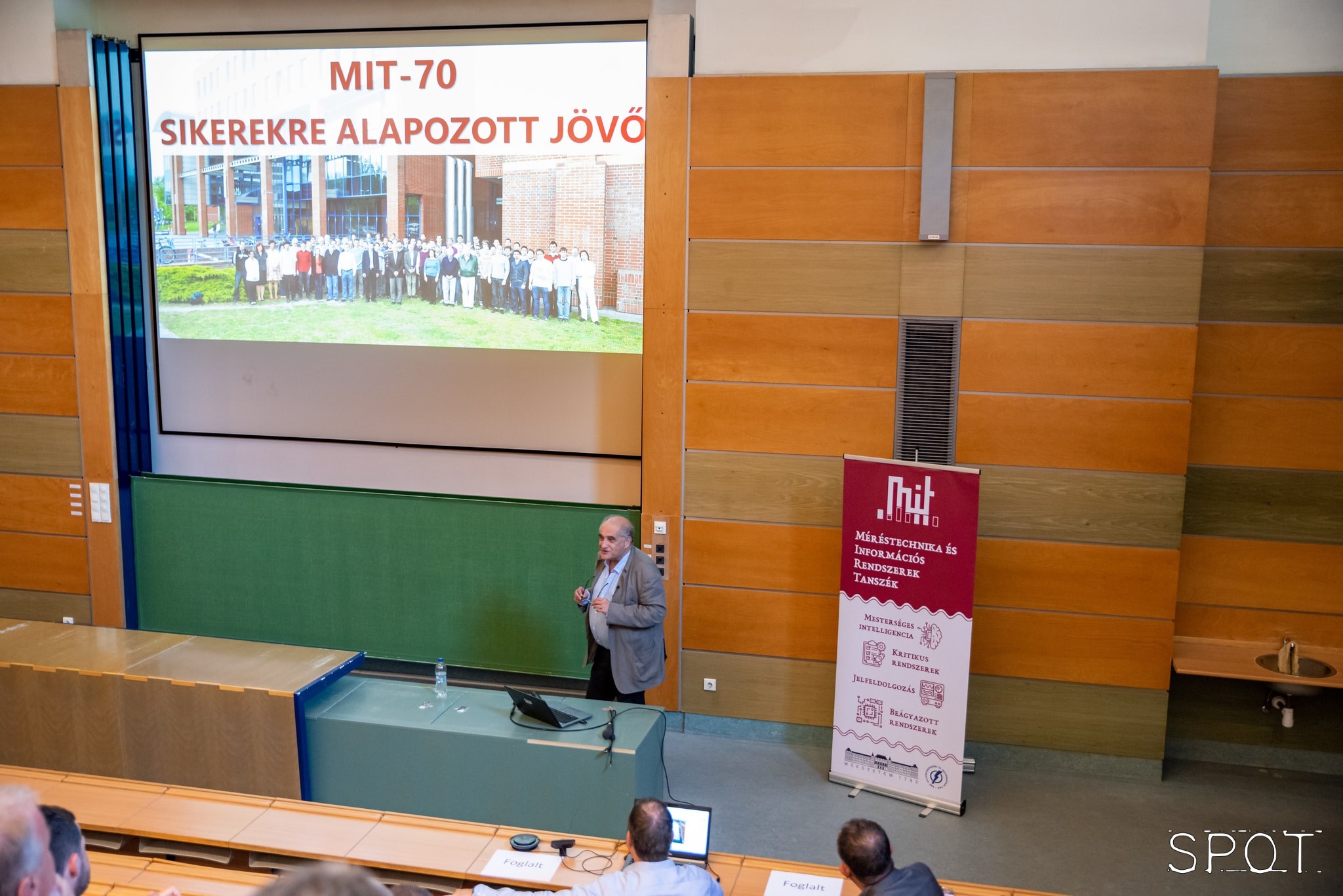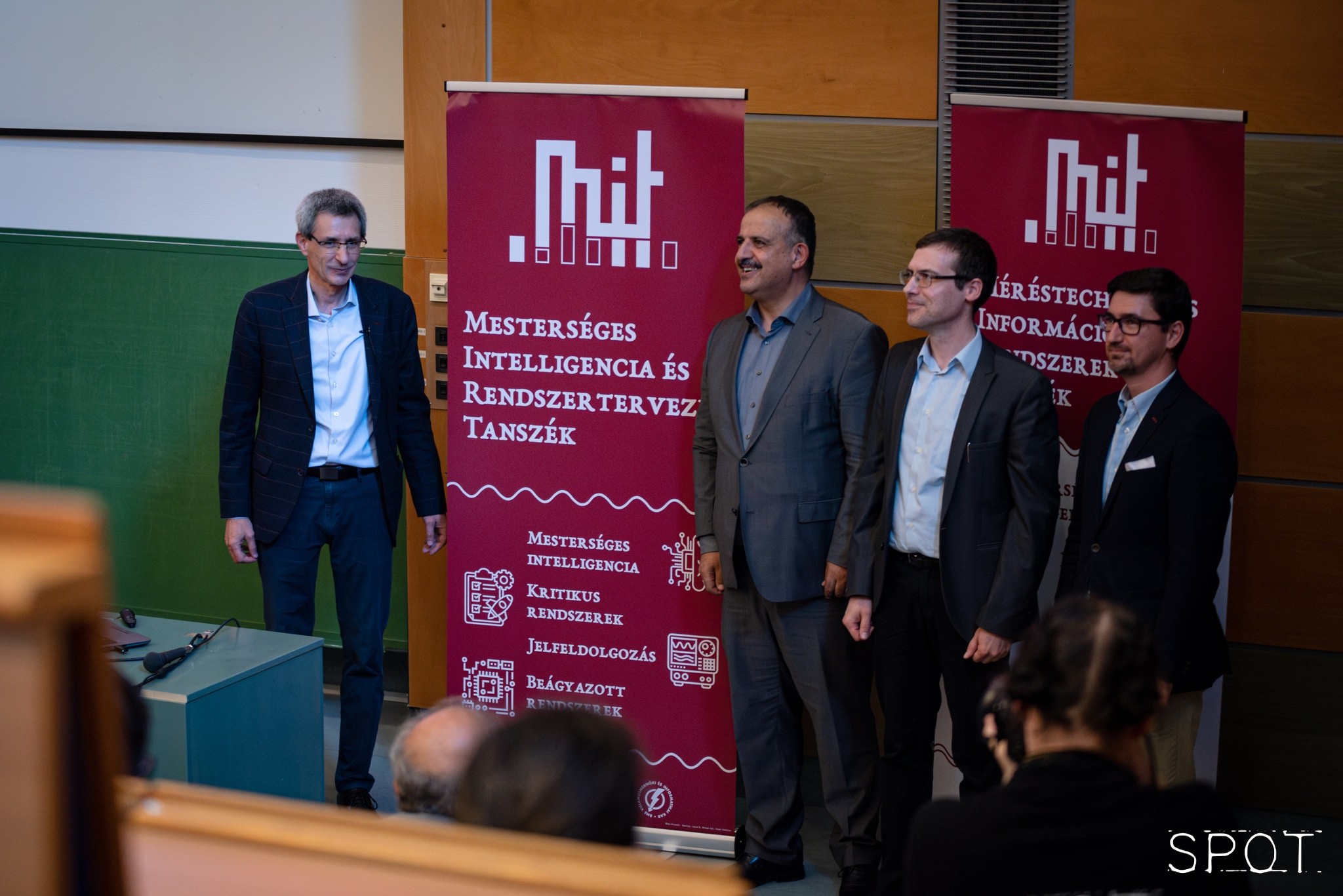Our department celebrated its 70th birthday with a new name
The BME VIK Department of Measurement and Information Systems celebrated the 70th anniversary of its foundation by presenting the outstanding successes of the past decades and the new research and innovation directions of the forthcoming years. In response to the evolution of the department's focus areas, we announced a name change at the event on 18 June: keeping the MIT acronym, but now, under the name of the Department of Artificial Intelligence and Systems Engineering, we will continue our successful research and teaching work.
The MIT Department of BME VIK was founded in 1954 as the Department of Instrumentation and Precision Mechanics. In the following period, it became a vital backbone institution of the booming Hungarian instrument industry, and in 1954, the name was changed to the Department of Measurement and Instrument Engineering (MMT). In 1997, in response to the explosive development of information technology, the department took the name of the Department of Measurement and Information Systems and the acronym MIT, which has been known ever since. At the anniversary event in June 2024, in response to the development of R&D competencies, the department changed its name to the Department of Artificial Intelligence and Systems Engineering, retaining the MIT acronym.

Department of Artificial Intelligence and Systems Engineering [Geberle B./BME]
In the first presentation, Prof. András Pataricza recalled the essential achievements of the past seven decades. The department has gained national and international recognition for developing precision instruments for the high-current industry, automatic compensated measuring bridges and measuring systems, and intelligent measuring instruments for the medical industry. The department has been at the forefront of pioneering digital techniques. Its outstanding R&D activities have been motivated by industrial needs, and several innovative ideas of staff members were realized and sold in international markets by spin-off companies. One such outstanding development was the MMT system, which was ahead of its time in combining measurement and computing in an intelligent instrumentation product line. At the end of the 1980s, the department pioneered artificial intelligence (AI) developments and applications such as industrial process control at the Danube Ironworks, real-time consulting systems, and intelligent EEG medical instrumentation.

Prof. Pataricza András highlights the achievements of the last seven decades [SPOT]
In the 1990s, under the direction of Prof. Gábor Péceli, the research activity became even more internationally embedded. The department staff participated in several EU research projects with Belgian, German, and Italian partners. During this period, competencies in embedded and fault-tolerant systems design and digital signal processing were strengthened. Acoustics, automotive and railway systems were also introduced as applications. Under the leadership of Prof. Ákos Jobbágy, the department has played an essential role in biomedical engineering education, and medical measurement and decision support systems remained a strength of the department. A radiological imaging device based on the principle of digital tomosynthesis, developed by the department under the leadership of Dr. Gábor Horváth, won the BME Innovation Award in 2016. András Pataricza concluded his talk by citing the MIT department's strengths as a combination of deep knowledge, innovative algorithms, systems thinking, and exploitation, which the department's staff have been able to use to flourish in a new direction in each era.
Since 1995, the department has been supported by the László Schnell Foundation, whose work was presented by the current chairman of the board of trustees, Dr. István Kerese. Five department staff members established the foundation, but in the almost three decades since then, it has been supported by members of the department's circle of friends and by several companies. A significant supporter of the Foundation is Josef Heim, who has successfully cooperated with the department through his company, a manufacturer of digital data recorders. After his unexpected death, the foundation was supported by his wife Else Heim, who has helped the foundation to regularly award several scholarships, including the Josef Heim Biomedical Scholarship.

Celebrating the new name of the department [SPOT]
Prof. Tamás Dabóczi, the head of the department, presented the department's current teaching and research directions. The department is currently involved in training electrical engineers, computer engineers, and biomedical engineers. It hosts several core courses, specializations, and doctoral theses in artificial intelligence, measurement and signal processing, embedded and critical systems, and systems design. After presenting the development and current focus of research competencies, Tamás Dabóczi unveiled the new department name, which was accompanied by resounding applause from the audience.
In the event's second half, the leaders of the Artificial Intelligence, Signal Processing, Critical Systems, and Embedded Systems research groups presented recent research and innovation results from the past years. The event concluded with a reception where current and former staff, students, and partners of the Department reminisced fond memories of the past decades.

